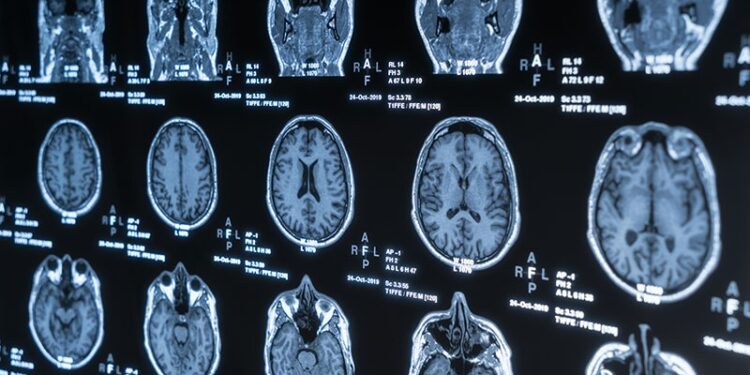TOPLINE:
Disturbed sleep was associated with greater small vessel disease (SVD) burden and worse cognitive performance in patients with transient ischaemic attack (TIA) or mild stroke.
METHODOLOGY:
- This cross-sectional study analysed 422 patients with TIA or mild stroke from two prospective cohorts (Edinburgh-UK, n = 211 and Hong Kong, n = 211) between 2018 and 2022, with all participants assessed at 1-3 months post-stroke.
- Participants underwent brain MRI for assessing markers of SVD (Fazekas white matter hyperintensities [WMHs], lacunes, perivascular spaces, and microbleeds) and the Montreal Cognitive Assessment (MoCA) for evaluating cognition.
- Self-reported sleep metrics (in-bed time, nighttime sleep duration, sleep latency, and sleep efficiency) were extracted from an adapted Pittsburgh Sleep Quality Index.
- The main outcome was SVD burden; the secondary outcome was the total MoCA score.
TAKEAWAY:
- Longer in-bed time was independently associated with increased summary SVD burden (odds ratio [OR], 1.27 per 1-SD increase; false discovery rate-adjusted P = .04) and greater periventricular burden (OR, 1.53 per 1-SD increase; P = .003).
- Increased sleep duration was not associated with cognitive performance/longer in-bed time was significantly associated with a lower total MoCA score (standardised β, −0.58; P = .02).
- Longer sleep duration was associated with an increased presence of cerebral microbleeds (OR, 1.42 per 1-SD increase; P = .04), although it was not significantly related to other SVD markers.
- In-bed time (r, 0.52) and sleep efficiency (r, 0.56) were positively correlated with sleep duration; sleep latency was negatively correlated with sleep duration (r, −0.24; P < .001 for all).
IN PRACTICE:
“2 markers of disturbed sleep, longer in-bed time and longer sleep duration, were cross-sectionally associated with greater SVD burden and worse cognitive performance in patients with TIA/mild stroke,” the authors wrote.
SOURCE:
This study was led by Dillys Xiaodi Liu, Division of Neurology, Department of Medicine, The University of Hong Kong, Hong Kong, China, and was published online on May 28, 2025, in Neurology.
LIMITATIONS:
The cross-sectional design and visual assessments of WMHs and brain atrophy limited precision. Patients with a history of sleep apnoea were not excluded, and changes in sleep quality over time were not assessed. As only baseline cross-sectional data were analysed, causal relationships cannot be established, and findings may differ in longitudinal contexts.
DISCLOSURES:
This study was supported by the UK Dementia Research Institute, European Union Horizon 2020, Row Fogo Charitable Trust, and other funding agencies. The authors reported having no conflicts of interest.
This article was created using several editorial tools, including AI, as part of the process. Human editors reviewed this content before publication.
Source link : https://www.medscape.com/viewarticle/sleep-small-vessel-disease-and-cognition-minor-stroke-2025a1000feo?src=rss
Author :
Publish date : 2025-06-11 12:00:00
Copyright for syndicated content belongs to the linked Source.













